Internationally renowned as a pioneer in innovative treatments and integrative therapies, Sierra Tucson is pleased to offer NeuroStar TMS Therapy® (transcranial magnetic stimulation) for treating depression.
The First Residential Treatment Provider to Offer TMS Therapy for Help with Depression
TMS Therapy is a clinically proven alternative for adult residents who have failed to respond to prior depression treatment, including antidepressant medication.
- Non-drug
- Non-invasive
- Non-systemic
- FDA-cleared
- Safe & effective
As leaders in cutting-edge psychiatric science, the medical team at Sierra Tucson strives to provide individualized care that is tailored to the unique needs of our residents. While TMS Therapy for treating depression is no quick-fix solution, we are confident that it will enhance our integrative mental health treatment and help improve residents’ quality of life.
How TMS Depression Treatment Works
NeuroStar TMS Therapy delivers magnetic pulses to targeted brain regions that regulate mood. These highly focused, MRI-strength pulses depolarize the neurons in these key areas that are underactive in residents with depression, thereby promoting the release of neurotransmitters like serotonin, norepinephrine, and dopamine.
Benefits of TMS Therapy
In clinical studies, 1 out of 2 residents reported a significant improvement in symptoms, and 1 in 3 residents were completely symptom-free. Residents also experienced durable symptom relief over 12 months. Because TMS Therapy is targeted, residents do not experience the negative side effects associated with antidepressant medications and receive help with depression.
Comprehensive Medical Care
Sierra Tucson’s medical professionals conduct TMS Therapy on site, which means residents get the benefit of close monitoring and staff support. Residents are awake and alert during the 37-minute depression treatment session, and can resume normal activities afterward. Side effects, if any at all, are minimal and temporary. Treatment is administered five days a week, for approximately 4–6 weeks*.
Are You an Appropriate Candidate for TMS Therapy?
- Clinically appropriate: Diagnosed MDD with no psychotic features
- Medications trial (APA algorithm states 1 med trial, most insurance payers require 3-4)
- Marginally functioning: This is likely an individual that is working but is just going through the motions. He or she does not spend all day in bed but may feel a desire to do so.
- MOTIVATED: The individual does not want to suffer from the disease of depression any longer. He or she is committed and dedicated to getting well.













